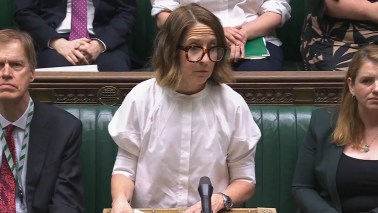The UK has one of the worst housing shortages in the developed world, with 4.3 million fewer homes than we need. This doesn’t just make housing more expensive – it also hits our country’s productivity and harms living standards across Britain. A challenge this size needs big, bold reforms.
The government’s latest response is its Planning and Infrastructure Bill, which was published on Tuesday. Will it get Britain building again?
Some of the biggest changes the Bill makes are for infrastructure projects. The Bill should reduce the power of quangos to block infrastructure from being built. In the past, infrastructure developers have been forced by regulators to build things like a £100 million bat tunnel to protect wildlife. The Bill should prevent things like this from happening by allowing builders to invest in nature elsewhere instead.
When it comes to the housing crisis, the Bill’s most significant reform is for planning committees. At present, even if an application to develop new homes is approved by a professional planner and fits an area’s local plan, it can still be blocked by councillors who sit on planning committees. The rules around the committees are unpredictable and vary from council to council around the country, making it very difficult for developers to get things built.
The government’s Bill creates a nationally consistent system. This should make planning decisions much more certain and rules-based. That’s a huge step forward in tackling the housing shortage which is largely down to developments being held up by costly delays and uncertainty in the planning application process.
These changes to planning committees should make homes more affordable in towns and cities across the UK. It will particularly improve the situation in London and places like Oxford, Brighton and Bournemouth – where average house prices are well over ten times local people’s average salaries.
As well as the Planning Bill, the government is embarking on several reforms to make the economy more dynamic by allowing cities to build again. These reforms include an updated policy allowing more building on what Labour calls the ‘grey belt’ – ugly and disused land which is currently in the green belt. Given the green belt makes up around 12.5 per cent of the total area of England and surrounds our biggest cities, building homes here will be essential to fixing the housing crisis.
Inside cities, the government also wants to speed up development on brownfield sites – land which has been developed before but is now empty – by ensuring the ‘default position’ of the planning system is to say ‘yes’ to these applications. This is a good idea: the UK’s cities are typically far less dense than their European and G7 peers and yet they are filled with empty brownfield lots. At the moment, developing brownfield land in UK cities is complex and our planning system makes it even more so.
All of the above should make planning decisions more predictable and give developers and investors more certainty. This will help turn blueprints into buildings and make Labour’s target of 1.5 million new homes by 2029 possible.
The knock-on effects of all this could be big when it comes to economic growth. Planning is currently one of the largest obstacles preventing our local economies from growing.The UK’s big cities – the engines of the national economy – should feel the greatest benefit, which is a welcome change. The planning system we’ve had in place since the second world war, and things like the green belt, have only strangled their prosperity.
The Bill also gives cities more freedom to grow by giving them strategic planning powers. In large cities like Manchester and Birmingham, which have a metro mayor in place, they will soon be able to expand their local public transport networks by approving housing next to new train stations or tram stops. This works by letting mayors use the revenue from the new housing to fund the building of the stations themselves.
Things like this are more difficult to do in the shires. It has traditionally been hard to devolve powers to more rural areas, as it involves several local authorities working together to approve housebuilding. Generally separate councils have not been able to agree on where new homes should be built. In future, the government could get round this by devolving building powers to existing county councils, rather than creating new metro mayors.
It’s important that the government succeeds in this, not just for meeting its housebuilding target but for creating growth in every part of the country. Hopefully this week’s Planning and Infrastructure Bill is the first step towards realising that ambition.







Comments